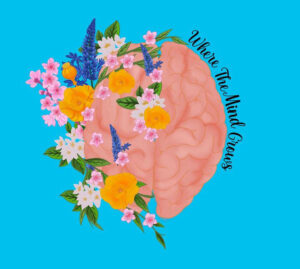The Purpose of Physical Therapy
PHYSICAL THERAPISTS FOCUS PRIMARILY ON STRENGTH, BALANCE AND MOBILITY. As such, a lot of attention is given to the legs and core. At the beginning, their main concern is safety, getting you to walk and being able to perform daily activities with safety. Depending on your progress, they can work with you to achieve bigger goals like using exercise equipment, weight lifting, attending a yoga classes or walking long distances.
The Many Faces of Occupational Therapy
OCCUPATIONAL THERAPISTS FOCUS ON FUNCTIONALITY. Generally they pay more attention to the arm and hand to help you do activities of daily living (ADL) and tasks relevant to your every day life like showering independently, shaving and brushing your teeth.
Occupational also does driving training/assessments for those able to get behind the wheel again. They help you learn ways to accommodate your new body and get back to painting, gardening and fishing.
Lastly, Occupational Therapists can help with Pelvic Floor Training. This requires a separate referral from your family practice or neurologist. You would need this therapy if body numbness or muscle weakness prohibits complete or controlled elimination or urination.
How Therapies Overlap and Collaborate
Often, PT and OT work together on tasks like standing or walking while focusing on visual/depth perception if your visual field is impaired. This skill is useful for walking on a street while looking for obstacles or traffic. Other examples would be standing at a table to sort small beads into pill bottles or match flashcards on a board.
OT will also work with Speech Therapists on cognitive, reading and writing tasks. An example is OT helping the hand to physically write while Speech teaches the skill of recognizing and forming the letters/words. OT will also help with worksheets to cue math and money skills used in everyday life and Speech will teach the recognition and speaking of those numbers.
What To Look For In A Therapist
No matter the therapist you require, the most important task is finding someone trained in Neuro-therapy. The brain has been impaired and that is the reason behind your physical and speech deficits. Neuro-therapists know how to help your brain relearn rather than simply focusing on the physical activity. They understand and can tailor therapy to each patient according to how their brain was impaired. Many universities, hospitals and large franchises will have at least one office staffed with Neuro-therapists and equipment.
Alternative Therapies
*With the onset of the pandemic, Telehealth visits became necessary and we think that is here to stay. While it seems counterintuitive, there are some therapists that offer Telehealth therapy. These therapists almost never accept or file insurance so be prepared to pay out of pocket. However, they spend the entire 45 or 60 minutes focused on your therapy without the paperwork and obligatory sessions wasted on periodic insurance assessments.
Even better, they can work with you in the comfort of your own home helping you navigate your own shower, kitchen and living spaces. They can help you learn how to dress using your own wardrobe or problem solve mobility issues presented in your unique living space such as walking from the gravel driveway to your front steps. They also do PT & OT together focusing on what goals you want regardless if they change or you’ve met them because they aren’t dictated by insurance requirements. Speech therapists via telehealth do not need to wear masks or clear shields that reflect light glare, something very important to the visually cued patient and those with apraxia who need to see mouth posture.
*Universities often have therapy clinics on their campuses. This environment allows graduating students to work alongside an actual therapist and run those sessions under their supervision. Generally they are cheaper than private therapy and the majority of clinics will file insurance or at least provide you a superbill for insurance reimbursement. They are renown for having state of the art equipment. The drawback is the shorter sessions and lots of time spent writing notes in the computer. However, if you have significant deficits and there isn’t a good neuro therapy clinic near you, a university is a good bet to get the heavy duty therapy and use of equipment like a body harness and robotic arm.
*Large inpatient rehabilitation facilities associated with a hospital or university often have outpatient clinics to transition your care upon discharge. If you live in the area of your rehabilitation facility, inquire about which of their clinics are best suited for your current situation.
Important Considerations
An important consideration in choosing therapy clinics: insurance will not allow you to pick and choose different clinics for each of your therapies. You must use the same facility for your PT, OT and Speech.
Be sure you choose a clinic that has more than one therapist for each modality so you can switch therapists and find that needed connection. It’s ok to ask for a different therapist. You need to be comfortable, feel respected and safe as you are putting yourself out there physically, mentally and emotionally. A professional therapist will not make you feel uncomfortable about switching within the practice.
If you don’t have options, or you’ve outgrown what that facility offers you, it’s ok to move your therapies to another clinic. This is not uncommon and often you’ll find yourself graduating to clinics that have more aggressive or advanced therapy as your progress in your recovery. You should not feel obligated to stay with the same clinic or simply quit out of boredom or lack of progress.
Finally, this is your recovery. If you feel your speech therapist speaks to you like a child or your PT isn’t allowing you to challenge your limitations, speak to them with respect and honesty. Communication is important to relay your goals and needs to your therapist and for them to respond with what they feel can be achieved plus the timeline and path for doing it.
If you can’t communicate well with your therapist, rather than just leave or quit, find a better fit. You owe it to yourself to have the best chance at recovery and regaining quality of life.
Below are some really talented physical and occupational therapists.
Further down is a state list where you can search for therapists in your specific locality.
The fine print: We treat our listings seriously because nothing is more important to us than safe and successful stroke recovery. While we review the information provided by business owners and practitioners to verify the appearance of responsible, ethical treatment, keeping the stroke survivor’s best interests in mind, we have no ability to enforce business practices, set guidelines or practice standards and cannot guarantee the quality or outcome of their services. Please research your potential provider thoroughly before proceeding with hiring them.
We also reserve the right to refuse listing to any business or practitioner that does not appear to meet a minimum threshold of standard care. Example, providers falsely promising they can reverse brain damage, practicing in a field without proper training or predatory , controversial treatment plans that do nothing more than drain a survivor’s wallet.

Orlando Neuro Therapy
Dr. Tara Tobias is a board-certified neurologic physical therapy specialist.
Tara has dedicated her entire 20 year career to helping people recover from neurologic injuries and people living with neurodegenerative conditions to move and live life to the fullest.
Her passion and her purpose are to treat the whole person and not just the diagnosis. Her belief is that therapy is a collaborative endeavor that requires both a time of teaching and a time of listening and learning about your values, expectations, and therapy goals.
Contact Person: Tara Tobias
Address: 1300 N Semoran Blvd, Ste 165,
Orlando, FL 32807
Email: use contact form on website
Phone Number: 407-900-0841
 Chain Reaction Physical Therapy
Chain Reaction Physical Therapy
Before I was a physical therapist, I was a surgical technologist for six years. Working in surgery, I realized we were using our resources to treat symptoms instead of addressing underlying factors. Patients with back pain were coming in for one surgery, then another, and their pain still wasn’t resolved.
Pain is a symptom, not a cause.
Continuing to treat symptoms will very rarely result in long term results. Pain is a symptom of what is happening in your body. What I love about physical therapy is that it allows me to address the underlying causes behind patients’ pain, while also finding them relief from their symptoms so that they can return to being active and living their life.
I’m excited to start the journey of getting you back to your life well lived.
Contact Person: Jessie Dupler PT, DPT
Address:
621 Miller Valley Rd, Suite A
Prescott, AZ 85301
Email: jessie@chainreactionpt.com
Phone Number: 928-379-6390

Where The Mind Grows
Where The Mind Grows offers adaptive yoga, breath work, and meditation resources for survivors of stroke and other neurologic injuries.
Doctor Alyssa is a physical therapist and yoga teacher who specializes in Neurologic Rehabilitation and strives to increase access to wellness services after injury.
Contact Person: Dr. Alyssa Breslin PT, DPT, NCS
Address: Telehealth and Sacramento, CA
Email: alyssa@wtmgwellness.com
YOUR BUSINESS NAME
Your business listed here includes a link to your website, one image that you want us to showcase as a header (you must own the pic), contact name, address, email and phone number. You can use this area for up to 100 descriptive words about your services, certifications and how you help stroke survivors with their recovery.
These paragraphs give you an estimation of how it would appear and the impact your upgraded listing can make when stroke survivors are looking for services and providers. Go to the ‘Contact Us’ page and tell us you want your business here.
Contact Person:
Address:
Email:
Phone Number:
YOUR BUSINESS NAME
Your business listed here includes a link to your website, one image that you want us to showcase as a header (you must own the pic), contact name, address, email and phone number. You can use this area for up to 100 descriptive words about your services, certifications and how you help stroke survivors with their recovery.
These paragraphs give you an estimation of how it would appear and the impact your upgraded listing can make when stroke survivors are looking for services and providers. Go to the ‘Contact Us’ page and tell us you want your business here.
Contact Person:
Address:
Email:
Phone Number:
YOUR BUSINESS NAME
Your business listed here includes a link to your website, one image that you want us to showcase as a header (you must own the pic), contact name, address, email and phone number. You can use this area for up to 100 descriptive words about your services, certifications and how you help stroke survivors with their recovery.
These paragraphs give you an estimation of how it would appear and the impact your upgraded listing can make when stroke survivors are looking for services and providers. Go to the ‘Contact Us’ page and tell us you want your business here.
Contact Person:
Address:
Email:
Phone Number: